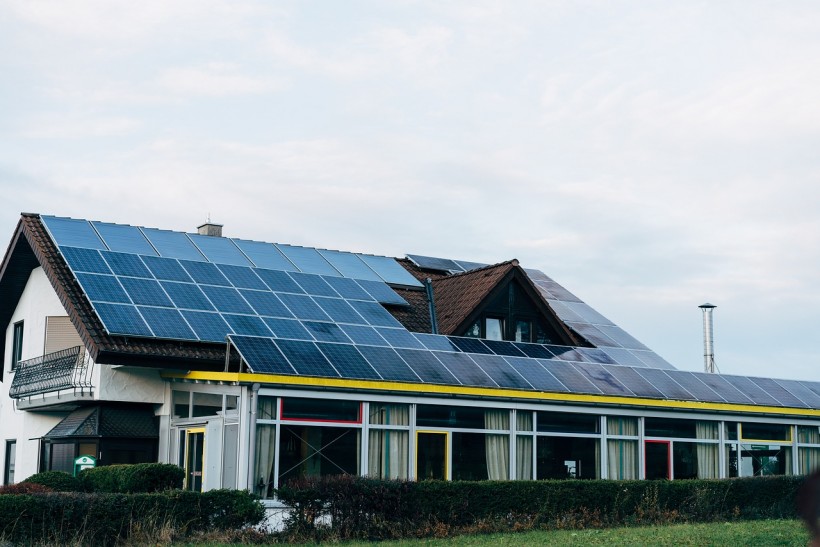
(Photo : Image by Markus Winkler from Pixabay )
According to the UN, global food prices have risen over 30% over the last year. The cost of living has also steadily risen, with substantial increases seen in everything from everyday grocery items to general goods and services. Pandemic-driven shortages and supply crunches, coupled with rising energy demand, climate change, a lack of viable options, and limited spare capacity have hit the energy market as well. This is where solar solutions can help by bringing safe, easy, hassle-free, and cost-effective solar savings. For example, PosiGen, founded by CEO Thomas Neyhart, recently hit the 18,000-install milestone. The company caters to communities with limited options for energy independence and has introduced several creative innovations for delivering solar energy to the communities that need it most. But is solar right for everyone?
PosiGen founder Thomas Neyhart says that his mission is to help struggling communities participate in the solar revolution, irrespective of their credit scores or income. According to Mr. Neyhart, PosiGen's mission is what helps the company deliver real value right back into the hands of its users. According to official sources, the company's goals are to:
- Have a positive impact on its customers and their families.
- Provide job opportunities to its user communities.
- Support growth in low-income communities and communities of color.
- Make a difference in the environment.
PosiGen vs. The Competition
Most solar providers use credit checks and have income benchmarks before approving customers for an installation. This prevents many would-be consumers who can benefit from a home solar energy system from having a system installed. These companies often have a variety of efficiency and effectiveness variations as well across their product lines - options that high-income families tend to prefer. However, Thomas Neyhart and PosiGen say that they only offer a straightforward solution that uses high-quality components and excellent workmanship that are guaranteed to lower your energy bill. To be approved for an install, all you need to do is undergo an assessment as to whether you can save from the company's system. If you will, you can count on approval.
PosiGen provides three color variations for roofing (Weathered Wood, Birchwood, and Charcoal), each of which comes with a lifetime warranty. Users can choose to lease the solution at a fixed monthly cost for 20 years or they can pay upfront for the system - whatever works for their particular situation is taken into account so that the user can enjoy the unrestricted benefits of the system they have in place.
PosiGen does not sell solar solutions to anyone unless it can be clearly demonstrated that the net outcome will be savings for the user and a guarantee that those savings can be generated within the first year. This is a unique market proposition, demonstrating PosiGen's focus on delivering savings via solar adoption rather than selling solutions in a "one size fits all" manner.
Thomas Neyhart's Three Steps to Generating Solar Savings
As per PosiGen CEO Thomas Neyhart, there are three steps to enjoying solar power independence.
First, PosiGen conducts a feasibility study on the prospective client's property to better understand the energy savings that the home can generate. Primarily, the feasibility study looks at:
- Solar Power Generation Potential: This involves an assessment of the home's location, structure, and roof space to determine whether adequate solar power can be generated to make the installation worth the client's while.
- Energy Consumption Profile: It is possible that a family's energy usage profile and bills are already optimized and that adding a solar roof will not save the family any additional money. By creating an accurate energy consumption profile, PosiGen tries to determine whether an installation is needed.
Each installation - unique to the property in question- is designed with the short- and long-term savings of the user in mind. The assessment must demonstrate positive net savings, and if it does, then PosiGen offers a no-hassle, long-term, fixed monthly rate for a 20-year term. The fixed monthly rate covers all material costs, installation expenses, regular maintenance, and efficiency improvements.
Second, PosiGen acquires all of the required approvals for the client's solar roof. This is where specific requirements with respect to the local utility provider or local government guidelines must be adhered to. This involves applying for and obtaining permits, developing a site-specific solar installation plan, and getting all of the project's documentation in order. This stage kicks off when the user signs the lease and it wraps all project costs into a fixed monthly rate for 20 years.
The third and final stage is when installation begins on the client's roof. The PosiGen plans, schedules, and installs solar panels of the client's roof and does not charge until the user starts saving money. Because the user will have had a positive feasibility study that indicated that savings were possible, the user will notice a reduced energy bill and their new, fixed rate for the solar solution lease. The savings can be seen from their very first bill.
PosiGen customers save money by not having to buy more electricity from their local utility company or the public grid because they have an array of solar panels on their roofs. PosiGen's lease is non-FICO-based and is fixed for 20 years. This acts much like a guaranteed minimum for solar saving on the customer's property. While the cost of energy is projected to go up over the coming years, the per-rate (kilowatt-hour) cost of energy using a solar solution installed today will remain the same.
Solar solutions are not a one-time install that you set and forget. They must be maintained, serviced, and improved to ensure continued savings and power generation. There are many options from which to choose, and PosiGen is demonstrating that a new approach to customer service and client approvals can have a net-positive effect on families and communities.
* This is a contributed article and this content does not necessarily represent the views of hngn.com








